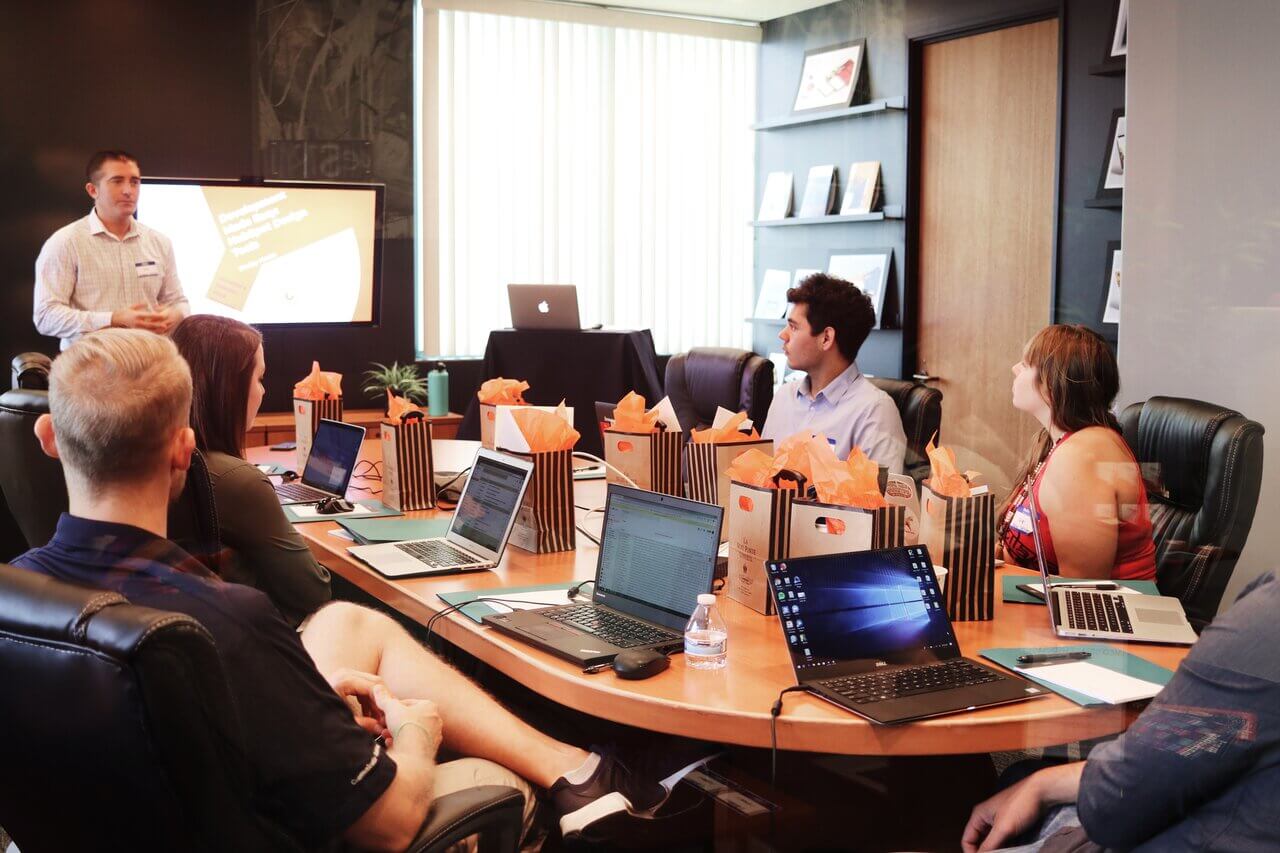How To Be a Good Meeting Facilitator
What are the key roles and tasks of a meeting facilitator and what skills or attributes are required to be good at it?

The word facilitation simply means the process of making something possible or easier. A meeting facilitator does just that; ensures that a meeting happens, and that it’s as easy and straight-forward as possible.
Just like a good agenda, a meeting facilitator is a crucial piece of the puzzle to run effective meetings.
Depending on the structure or size of a company, the role of the meeting facilitator can fall to different people. In an agile structure, the role will often belong to a scrum master. In other structures it might belong to a program manager, business analyst, or an assistant.
It’s important that whenever possible, the facilitator is not someone who needs to be an active participant in the meeting discussions, the facilitator should be a neutral party. A meeting facilitator is at once a leader, a driver, and diplomat.
A great facilitator will be able to steer the meeting according to the agenda, pick up on valuable points and ideas, extracting the collective knowledge and insights of the participants to piece everything together and achieve the meeting's goal.
What is the role of a meeting facilitator?
The meeting facilitator often starts working before the meeting is in session by ensuring the objectives of the meeting are clearly defined. They may or may not be solely responsible for writing the agenda, but they should be collaborating on it to ensure it aligns with the goals laid out.
Before the meeting starts, the facilitator will prepare the room and have any necessary materials ready, and if the meeting is being run remotely ensure any logistical processes are in place and working.
Once a meeting is in session, the facilitator will steer proceedings and set the pace for the discussions. It’s important to understand that although the facilitator controls the meeting, they do not control the participants. The role is about steering, and navigating discussions, not about pushing an agenda or driving specific ideas.
During the meeting, the facilitator will be responsible for ensuring the meeting stays focused and that everyone can participate. They will summarize ideas made and clarify anything unclear, ensuring everyone is always on the same page. They can help deal with any disagreements that may arise, in situations where there are opposing arguments. A neutral participant is of huge value to get to the root cause of issues and concerns and to find a solution that fits the whole group.
Good facilitators will also ensure that the meeting finishes on time and that decisions and action items are recorded.

Facilitator Tasks
Managing the meeting process
The facilitator should ensure that all outlined meeting processes are followed. This can include things such as start and finish times, following the agenda, who will lead discussions for each topic, time keeping, and record keeping.
Keeping the participants focused
Is the discussion valuable and conducive to helping the group achieve the meeting’s purpose? If not, it’s time to intervene and get the meeting back on track. Discussions can branch off at times, and without intervention they could end up taking up a big chunk of the meeting.
It’s not uncommon to feel in the moment that the rabbit hole you’re entering as a group is important and valuable, but then in hindsight to realize it’s not aligned with what the meeting was trying to achieve. It’s the facilitator’s responsibility to recognize where to draw the line and intervene to re-focus the group.
Clarifying and understanding goals
The facilitator should have a clear understanding of the goals of the meeting and how that aligns with the bigger picture goals of a project or department. This means that they know not only what needs to be achieved in the meeting, but also how that goal will flow into the next goal.
Working with both the micro and macro perspective is important to ensure that everything flows freely and makes sense. Having clarity over goals and communicate them well also ensures that participants can be all on the same page too and there is no confusion about what needs to be achieved.
Ensuring everyone can participate
Whether it’s simply observing people and encouraging conversation where someone may be holding back, or using tools such as whiteboard and post-it notes to get everyone contributing, there’s different approaches and techniques to ensure everyone in the meeting is actively participating. The facilitator should ensure there are no barriers deterring anyone from sharing their opinion or ideas.
Creating and maintaining the right vibe
A meeting facilitator should take ownership of the vibe and energy of the meeting. This can be achieved through acknowledgement of the groups successes, as well as encouragement of the progress being made to achieve the meeting’s goals. Of course, a facilitator should be optimistic and enthusiastic about the meeting’s purpose and agenda.
Recording action items and delegating them
If a meeting doesn’t have action items, was it worth the time and salary of all the participants? The simple answer to that is a resounding no. It’s vital to capture action items as they arise so that they can be followed up by the appropriate people.
Although the facilitator is not necessarily responsible for taking minutes, they should be the ones identifying important points that require follow-up and ensuring they are captured and allocated to the right people.

Key skills and attributes
Assertiveness
A meeting facilitator needs to be able to interrupt when necessary and to be confident in re-directing discussions if they starts to lose focus. Sometimes this can feel awkward or impolite, but it’s vital.
A great facilitator will have the ability to intervene with grace.
Analytical and observation skills
Whilst discussions are in process, a great facilitator will be observing the participants, looking to understand how the discussion is landing.
Are the participants in agreement? Is there someone in the back of the meeting that looks to be frustrated by a statement made? All those observations can then be brought forward to the discussion and ensure that anything necessary is addressed in the moment and doesn’t get carried out of the meeting.
Neutrality
Remaining neutral and not taking sides is very important to ensure that all sides of a discussion or argument is given due respect.
Remaining neutral can be difficult when the facilitator is also expected to participate in the discussions which is why when possible it should be avoided. If that is not an option, the facilitator can simply communicate when they are expressing their views and then express when they are resuming the role of facilitator.
Listening skills
Great facilitators will be well versed in active listening skills; asking questions to gain a complete picture of the ideas, arguments, or solutions discussed.
It’s important for the facilitator to always listen without judgement, and to give whoever is speaking their undivided attention. Being a great listener not only means that discussions will be properly understood, it also helps to build trust, respect and rapport with the meeting participants which will lead to better and more open discussions.
In summary, facilitating a meeting is a very important role. One that requires skill and thought, as well as domain knowledge and great soft-skills. A great facilitator is worth their weight in gold, enabling great discussions, concise decision making, and timely proceedings.
